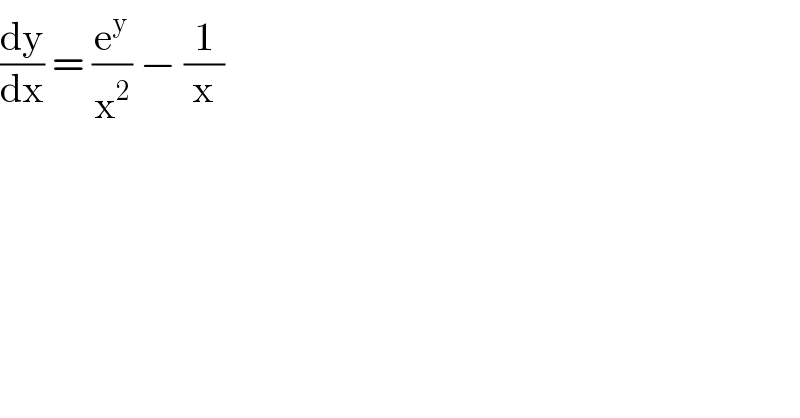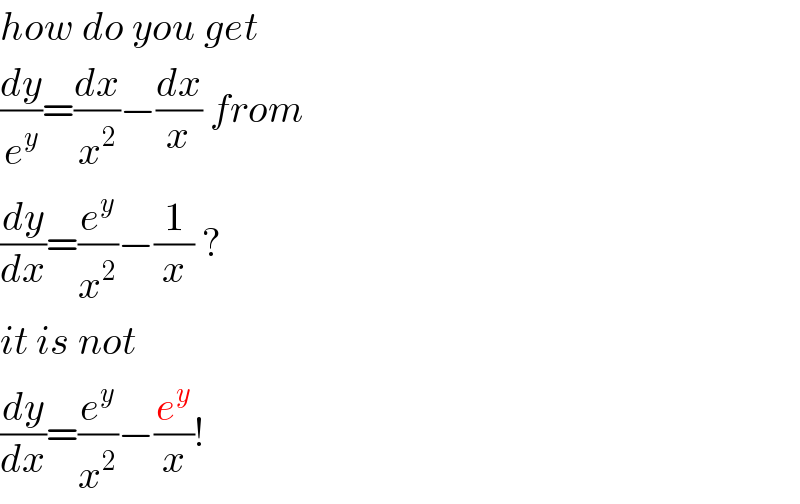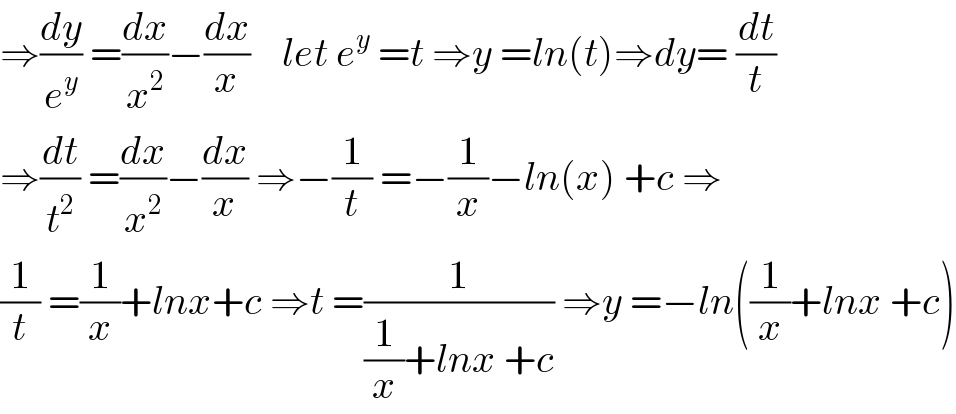
Question and Answers Forum
Previous in Differential Equation Next in Differential Equation
Question Number 92464 by jagoll last updated on 07/May/20

Commented by mr W last updated on 07/May/20

Commented by mathmax by abdo last updated on 07/May/20

Commented by i jagooll last updated on 16/May/20

Commented by i jagooll last updated on 16/May/20

